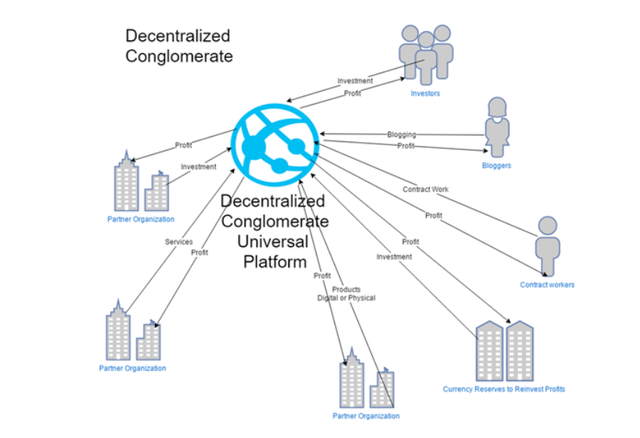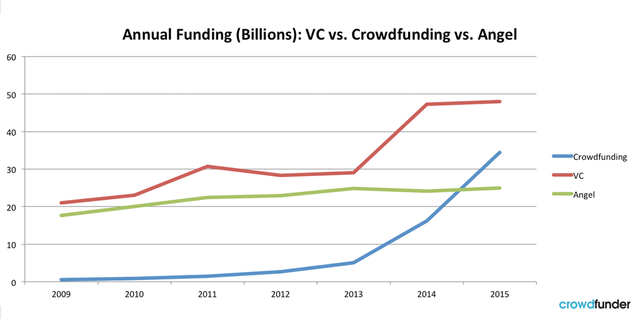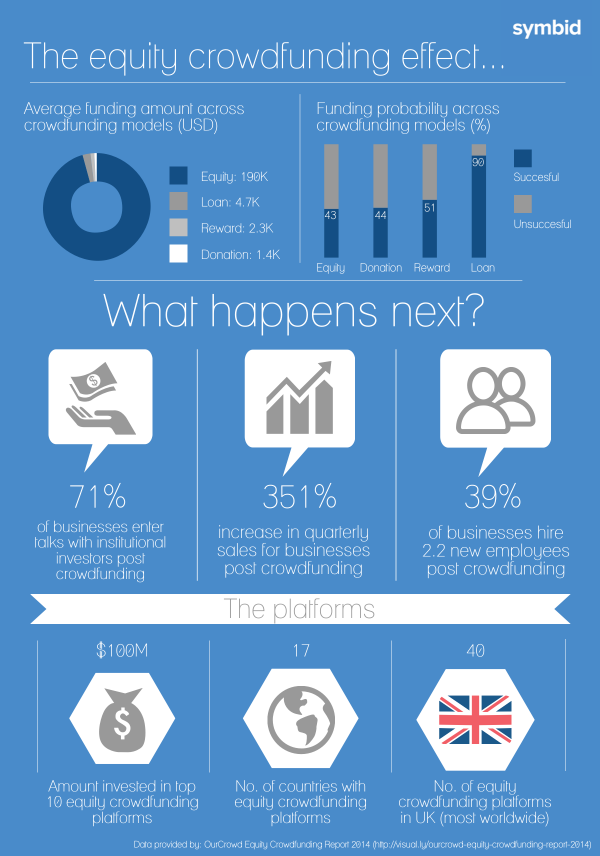Why ICOs Will Revolutionize Crowdfunding

There is much debate within the cryptocurrency community about the validity of "ICOs" or "Initial Coin Offerings".
On the one hand, many assert that they are mechanisms to execute scams. On the other hand, there is the assertion that with the correct execution, ICOs could be a revolutionary mechanism to help crowdfunding quickly evolve into a main line directly into the vein of the free market.
I am of the mind that ICOs done correctly can be a revolutionary mechanism, and I will lay out my argument as to why:
What are "Initial Coin Offerings"?
Well, let's first articulate the difference between a "token" and a "security".
From Investopedia...What is a Security?
"What is a 'Security'
A security is a financial instrument that represents an ownership position in a publicly-traded corporation (stock), a creditor relationship with governmental body or a corporation (bond), or rights to ownership as represented by an option. A security is a fungible, negotiable financial instrument that represents some type of financial value. The company or entity that issues the security is known as the issuer.
BREAKING DOWN 'Security'
Securities are typically divided into debts and equities. A debt security represents money that is borrowed and must be repaid, with terms that define the amount borrowed, interest rate and maturity/renewal date. Debt securities include government and corporate bonds, certificates of deposit (CDs), preferred stock and collateralized securities (such as CDOs and CMOs).
Equities represent ownership interest held by shareholders in a corporation, such as a stock. Unlike holders of debt securities who generally receive only interest and the repayment of the principal, holders of equity securities are able to profit from capital gains.
In the United States, the U.S. Securities and Exchange Commission (SEC) and other self-regulatory organizations (such as the Financial Industry Regulatory Authority (FINRA)) regulate the public offer and sale of securities.
The entity (usually a company) that issues securities is known as the issuer. For example, the issuer of a bond issue may be a municipal government raising funds for a particular project. Investors of securities may be retail investors–those who buy and sell securities on their own behalf and not for an organization–and wholesale investors–financial institutions acting on behalf of clients or acting on their own account. Institutional investors include investment banks, pension funds, managed funds and insurance companies."
A "Token" can be many things.
It can be:
-Access control mechanism (i.e. token as a form of entry into a system)
-Cost for using the system (i.e. Ether/Gas, Factom/Factoids, etc...)
-A mechanism to which one can attach encrypted messages
-A mechanism to which one can attach sensitive information that can be transferred
-A mechanism to track activity for reward systems
Now, these are not the only functions of tokens, but this list is meant to show that tokens have a function within a software ecosystem. Nike Fuel is just as much a "token" as "pinkcoin". However, "nike fuel" does not use a blockchain to track the back end of the token data, and thus the token does not share the same qualities as a blockchain based token. It is not something that can be "traded" on exchanges because the software behind tracking nike fuel does not also carry the same hashing algorithms that "cryptocurrency tokens" have.
This is where the function of "tokens" for an organization can serve many purposes depending on if you are a customer, someone who is working for the organization, or someone who simply wants to find a way to earn tokens by selling your time as a freelancer.
Activity tracking being attached to accounts are nothing new.
Imagine for a second that every time you went to the grocery store, all your purchases went into a database that was attached to an encrypted number. This database would analyze your purchases, and offer you rewards based on your purchases in the form of "tokens" that you could use towards purchases in the store, or if you took the brand tokens from organizations that you frequented, your tokens would get you a better rate on their specific products...
That's how the customer id at your local grocery store already works...
"Tokenization" is nothing new concerning how to increase economic flow giving loyal customers and investors a discount.
If we look at what are known as "scrips" the concept of what we now call "tokenization" has been around far before computers or digitization.
Definition of Scrip from Wikipedia:
"Scrip (sometimes in India called chit) is a term for any substitute for legal tender and is often a form of credit. Scrips have been created for payment of employees under the truck system, and for use in local commerce at times when regular currency was unavailable, for example in remote coal towns, military bases, ships on long voyages, or occupied countries in wartime. Besides company scrip, other forms of scrip include land scrip, vouchers, token coins such as subway tokens, IOUs, arcade tokens and tickets, and points on some credit cards.
Scrips have gained historical importance and become a subject of study in numismatics and exonumia due to their wide variety and recurring use. Scrip behaves similarly to a currency, and as such can be used to study monetary economics."
Now, establishing the context of "scrips" and "tokenization" was important to give context for why ICOs will become important.
"But why not just use Kickstarter or GoFundMe?"
There are a few reasons as to which ICOs are superior crowdfunding mechanisms to Kickstarter.
First, the biggest issue is that Kickstarter is EXTREMELY centralized. The platform is highly restrictive, and getting a campaign onto their platform often has a lot to do with formal iterative process rather than the merit of a campaign. Many campaigns are denied access to the platform, and are pushed to GoFundMe. GoFundMe is a great mechanism to get a campaign started for crowdfunding.
The big issue becomes that people who contribute have nothing to show for it. If a project gets funded on GoFundMe, and the reward is a "t-shirt", that is great that a person can show that they helped the project get off the ground, but then they have to go invest in the IPO if the company decides to go public to actually recoup any money from the original investment.
Now, THIS is where people must decide if they are "Angel Investors" or "Investors".
Angel Investors are supposed to technically be going into a project expecting that there is no real return.
They are the big risk takers. They often will fund a project with the right of first refusal in the case that the company decides to go public.
On the one hand, it is meant to fund "ideas", and get "big projects" started when people see potential, but there is not yet something tangible turning a profit.
Now, we can look at a risk assessment table to see that Angels carry the biggest risk outside of friends and family. Technically, these rounds are all tied to monetary values.

If you have raised less than 500k, you are in a "friends and family round". If you have crowdfunded past 500k, you start to shift to enterprise level from startup scale. Small to medium enterprise scale is what many of the large ICOs in the crypto space turn out to be. If you are raising between 500k and 5 million, you are in the SME range. This is where ICOs have allowed developers to take what would traditionally be investment rounds in which they are selling equity and use tokenization to crowdfund the project.
This does a couple things simultaneously.
First, it shows that the market is interested.
That is the biggest takeaway. Showing that the market is willing to put forth that much capital towards a project shows that there is interest.
Whether that is organic or not is always the question.
Market interest is not enough.
The ICO brings forth public vetting of the project.
When a project is being put forth and there is the potential of capital moving towards the project, the project will come under major scrutiny. This forces refinement.
In the same way that the DAO hack actually forced the Ethereum chain to harden the security layers, putting a project into the crowdfunding space offers iterative refinement.

The Crowdfunding movement is not stopping, and is in fact increasing. If a start-up is looking to raise money to expand operations or build out a prototype, the trends show that crowdfunding is becoming the preferred entrance point by the market.
Another benefit ICOs offer are a way for a companies to find valuations before they sell equity.
The Ethereum Developers used the decentralized ICO route, and built a platform on which enterprise organizations now feel comfortable building applications. Effectively, Ethereum is the prime example of what an ICO can become.
It started as an idea and a white paper, which Vitalik traveled around the world defending against the most rigorous questioning. I saw him speaking in Chicago in 2014 before Ethereum was even close to being launched, and I can say to see something go from white paper to Enterprise scale DAO is a pretty amazing feat. That is partially why I have so much confidence that ICOs can change the technological and economic landscape.
THEY ALREADY HAVE.

Let's talk about investing in Britain:
"Investment Limits
The maximum level of compensation for claims against firms declared in default on or after 1 January 2010 is £50,000 per person per firm.
The maximum level of compensation for claims against firms declared in default before 1 January 2010 is 100% of the first £30,000 and 90% of the next £20,000 up to £48,000 per person per firm."
Britain has this fantastic caveat that if you invest in a British company (I believe that is the main requirement) that they will reimburse losses up to a certain percentage.
If you are not aware of "BnktotheFuture" this Investment scheme is why they are attracting such major investment into their funding rounds.
It's not some secret whale group.
It's Smart investment.
This is where if you find the proper regulatory frameworks, ICOs can be a FANTASTIC investment mechanism.
If they are done correctly, they can protect the investor up to a certain point (if done through UK channels), as well as get rigorous vetting of a project before launch.
While they can be used for bad, that goes for any tool.
References -
http://crowdfundbeat.com/2016/05/10/will-equity-crowdfunding-overtake-angel-and-vc/
https://www.fscs.org.uk/what-we-cover/products/investments/
https://www.fscs.org.uk/what-we-cover/compensation-limits/investment-limits/
https://www.sec.gov/spotlight/jobs-act.shtml
http://www.academia.edu/27773745/Decentralized_Conglomerate_White_Paper
https://en.wikipedia.org/wiki/Scrip
http://kotaku.com/how-a-successful-kickstarter-lost-half-a-million-dollar-1608877998
The limitations I can see...
If you want to be limited to receive no more than $50 million. If you want to register in all 50 states. And there might be other limits, such as requirements to be an accredited investor or limits to how much a person can invest.
How does an ICO avoid these limits?
References
I would assume ICOs that hit these limits didn't do so in the US market only, and thus would not be restricted by US law. Ethereum didn't take any NY IPs for example I believe.
Okay, but that places a new restriction based on location and now developers have to restrict IPs. This hurts both American token holders and complicates matters.
THAT is true. It is an issue of Americans being limited by laws that don't extend to the rest of the globe. So yes, your assertion here is absolutely correct for American holders, and ESPECIALLY NY citizens. However, this is why ICOs serve the global market, and not JUST America. Remember, you're talking about 330 million, when there are 6.4 billion others in the rest of the market.
Okay, but Americans cannot take advantage of the ICO model like the rest of the world can. I know the UK has favorable laws for equity crowdfunding but the United States has some of the most restrictive I know of.
They can, they just can't use it beyond 500k in the same way that people outside the US can. It's not unusable in the US.
Yes, US laws are very restrictive concerning investment, but a lot of it has to do with "anti-terrorism" bullshit. The anti-terrorism propaganda has affected legislation a LOT. The terrorism argument is one of the biggest hurdles to crypto adoption here.
I didn't hear anything about anti-terrorism and I don't see what it has to do with investing or crowdfunding. I'm not sure I follow.
AML/KYC laws are there to prevent money laundering. The biggest issue with encryption is that governments don't know "who" is doing what with capital.
That is why you had David Cameron coming out talking about trying to get rid of encryption altogether.
If you haven't heard any of the anti-terrorism rhetoric associated with digital currency, you have to go back to 2014/2015 when ISIS was emerging into the mainstream. It's not a recent conversation.
I have been in the crypto scene for a while, so the evolution I am talking about isn't something that happened in 2016. I have been in crypto since 2011, and been a developer since 2014.
The issue with "terrorism" and "crowdfunding" or "investing" is that money can be laundered if invested through non AML/KYC channels.
The entire crypto industry was not using AML/KYC standards up until about 2015, so there is absolutely no way to know in fact if any terrorism got funded by crypto, or how much. In that regard, the number could be 0 just as well, but without data, it is a hypothetical framing used to scare people into restrictive legislation.
So, it's not that the terrorists are ACTUALLY using crypto...that is what the US government/UK governments were saying in 2013/2014 to try to scare people away from adoption.
https://www.theguardian.com/global-development-professionals-network/2015/feb/09/terrorism-money-laundering-know-your-customer-financial-inclusion
https://www.ctc.usma.edu/posts/how-terrorists-use-encryption
This is true for things like "online gambling" though, so it's not unique or exclusive to crypto.
Online gambling has a LOT of ip restrictions globally, especially in the US.
Plus these are NOT the same as securities. It would be the equivalent of Blizzard Entertainment selling 50 million worth of presales for a video game.